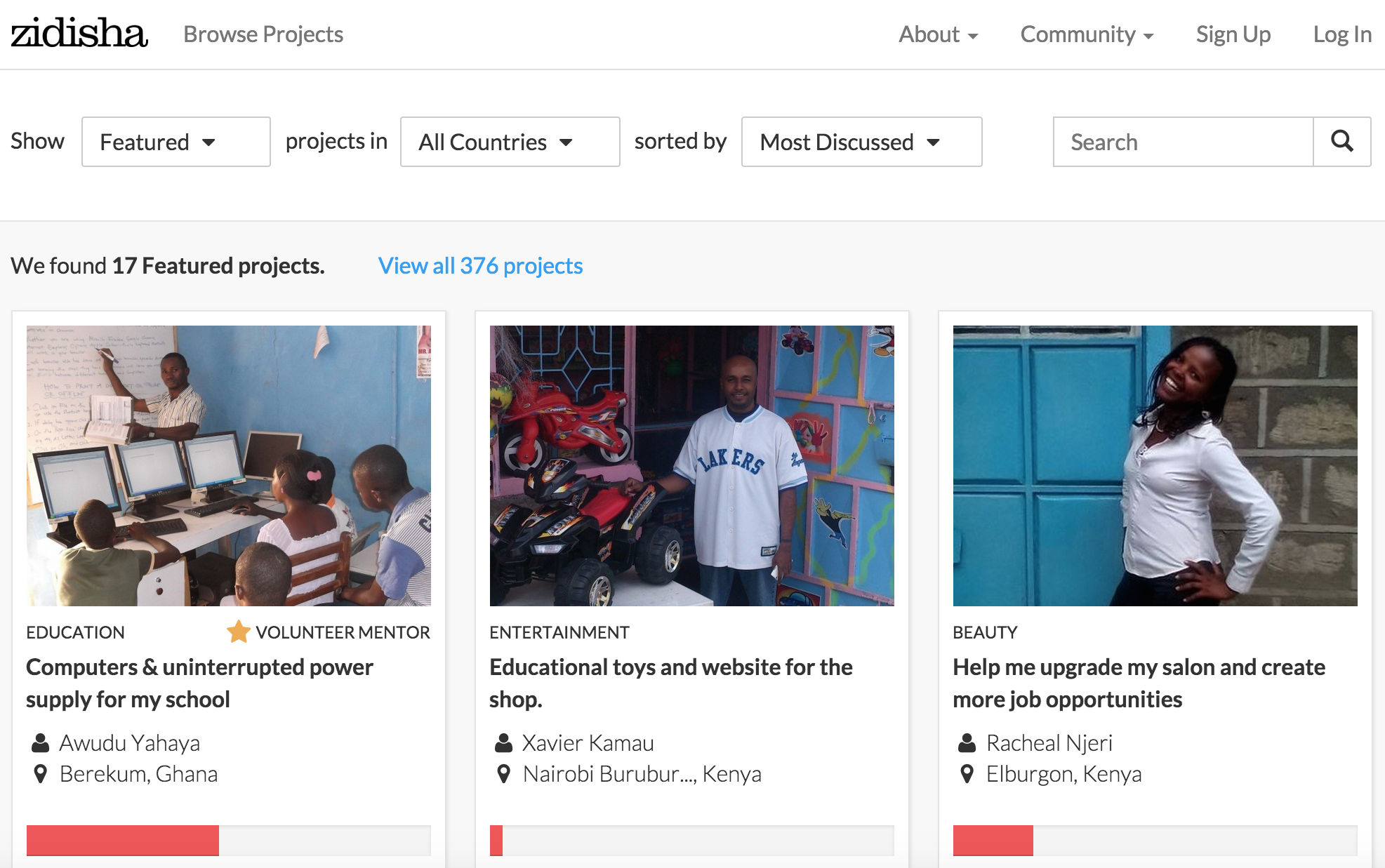
Making a social impact with P2P microfinance: Zidisha launches in Haiti
The Next Web: Y Combinator non-profit alum Zidisha is launching its cross-border P2P lending platform in Haiti, its first Latin American market, its founder Julia Kurnia told TNW in an exclusive interview.
According to its website, “Zidisha is the Swahili word for ‘grow’ or ‘expand,’ as in a business or a quality such as freedom or prosperity.” Prosperity is indeed the result it hopes to achieve through its crowdsourced loans, not only for borrowers but also for their home countries. Before Haiti, Zidisha’s platform was already open to projects from Burkina Faso, Ghana, Guinea, Indonesia, Kenya, Niger, Senegal and Zambia.
While loan applicants have to live in these countries, lenders are typically from more developed economies, but not just the US. According to Zidisha’s stats page, its more than 20,000 members come from a total of 144 countries.
The same page also points out that more than $3 million loan money has been raised through its platform, helping fund 13,450 projects to date.
Each project has its own page, in which the prospective entrepreneur describes their needs and goals, from opening a restaurant or hair salon to buying farming supplies and computers. This isn’t simply storytelling; according to Kurnia, one of Zidisha’s differentials is that lenders can establish a connection with the person they are funding.
This is also the reason why Gmail creator and Y Combinator partner Paul Buchheit made a personal donation of $100k to Zidisha, as he explained at the time:
“Just as Airbnb connects travelers directly to hosts, Zidisha connects lenders directly to borrowers, providing not only an affordable loan, but also a personal connection, so that people are able to exchange progress updates, photos, and more. I’m a big believer in the idea that personal connections across economic and cultural divides can go a long way towards uniting all people in peace and prosperity. It’s one of the big reasons that I’ve invested in AirBnb, Watsi (our first non-profit startup), and now Zidisha.”
Read the full article: The Next Web





